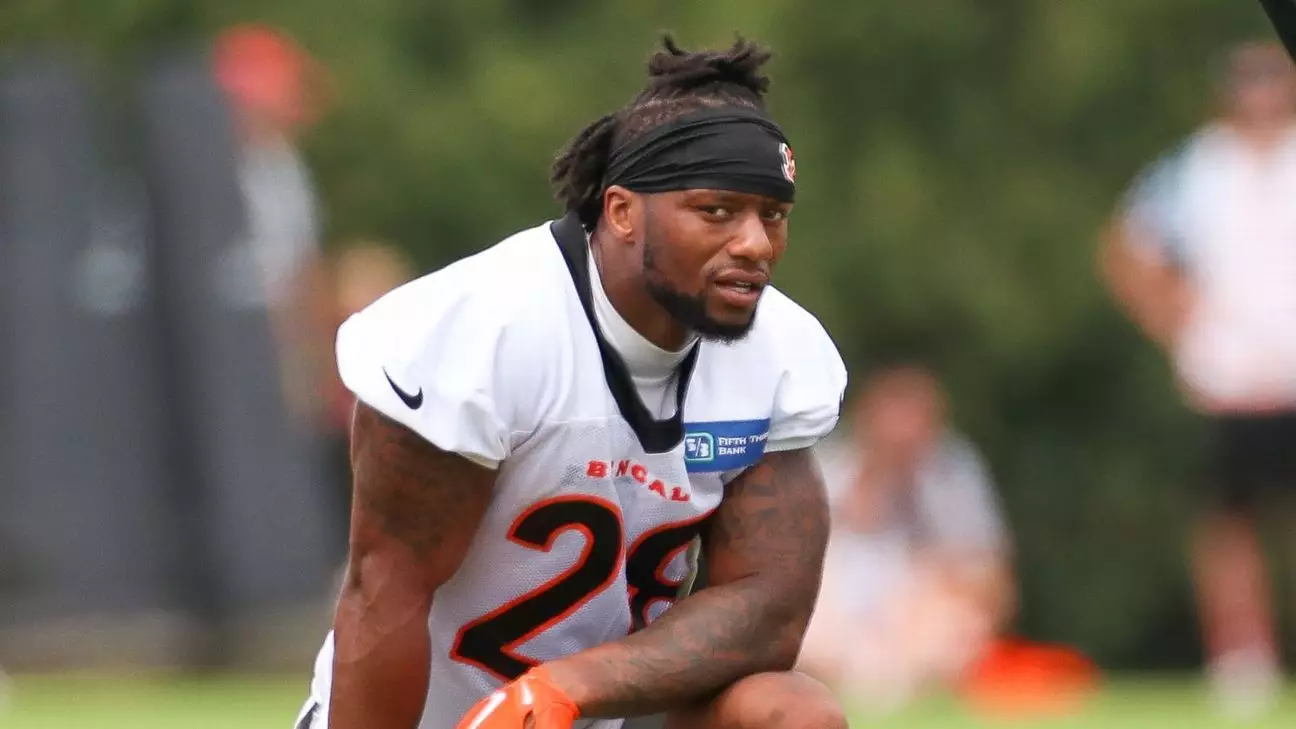Cincinnati Bengals’ running back, Joe Mixon, made headlines recently when he refused to speak to reporters during his first practice following his not guilty verdict in an aggravated menacing case. After Sunday’s practice, Mixon declined to address the media and announced that he would be boycotting questions from certain reporters representing Sports Illustrated, The Cincinnati Enquirer, Pro Football Network, and ESPN. Citing disrespectful behavior, Mixon made it clear that he would not engage with these journalists.
Joe Mixon, a seventh-year player out of Oklahoma, has had a turbulent year off the field. In April, he faced charges of misdemeanor aggravated menacing after allegedly pointing a gun at a woman and threatening to shoot her. However, last week, Hamilton County Municipal Court Judge Gwen Bender ruled Mixon not guilty, stating that the city prosecutors failed to prove the case beyond a reasonable doubt.
Apart from the aggravated menacing case, Mixon also faces a lawsuit related to an incident where a teenage neighbor was shot in the foot while playing with Nerf guns. Although Mixon was not a suspect in the criminal investigation, others have been charged, including an individual with a count of felony assault. Despite these legal issues, Mixon remains on the Bengals’ team after renegotiating his contract to reduce his salary cap hit. The new deal makes Mixon accountable for $8.5 million against the cap in 2023.
Despite his off-field troubles, Mixon’s on-field performance has been a mixed bag. After an impressive Pro Bowl season in 2021, his success rate dropped to 41.0% in 2022. While this figure is slightly below the league average of 41.7% among players with 150 or more carries, it still paints a picture of a player who has room for improvement.
Joe Mixon’s boycott of certain reporters raises questions about his relationship with the media and how it may impact his public image. It is not uncommon for professional athletes to be critical of journalists or specific media outlets, as they aim to control their narrative and ensure fair coverage. However, Mixon’s decision to completely shut down communication with these reporters may not be the best approach. By avoiding all questions, he may be limiting his ability to share his side of the story and potentially repair his image.
Joe Mixon’s refusal to speak to reporters following his not guilty verdict in an aggravated menacing case has sparked controversy and raised concerns about his off-field behavior. His decision to boycott specific reporters and outlets is indicative of his dissatisfaction with perceived disrespectful behavior. As the legal proceedings and lawsuits continue, Mixon’s on-field performance will also be closely scrutinized. It remains to be seen how he will navigate the delicate balance between his personal life and his professional career.


Leave a Reply